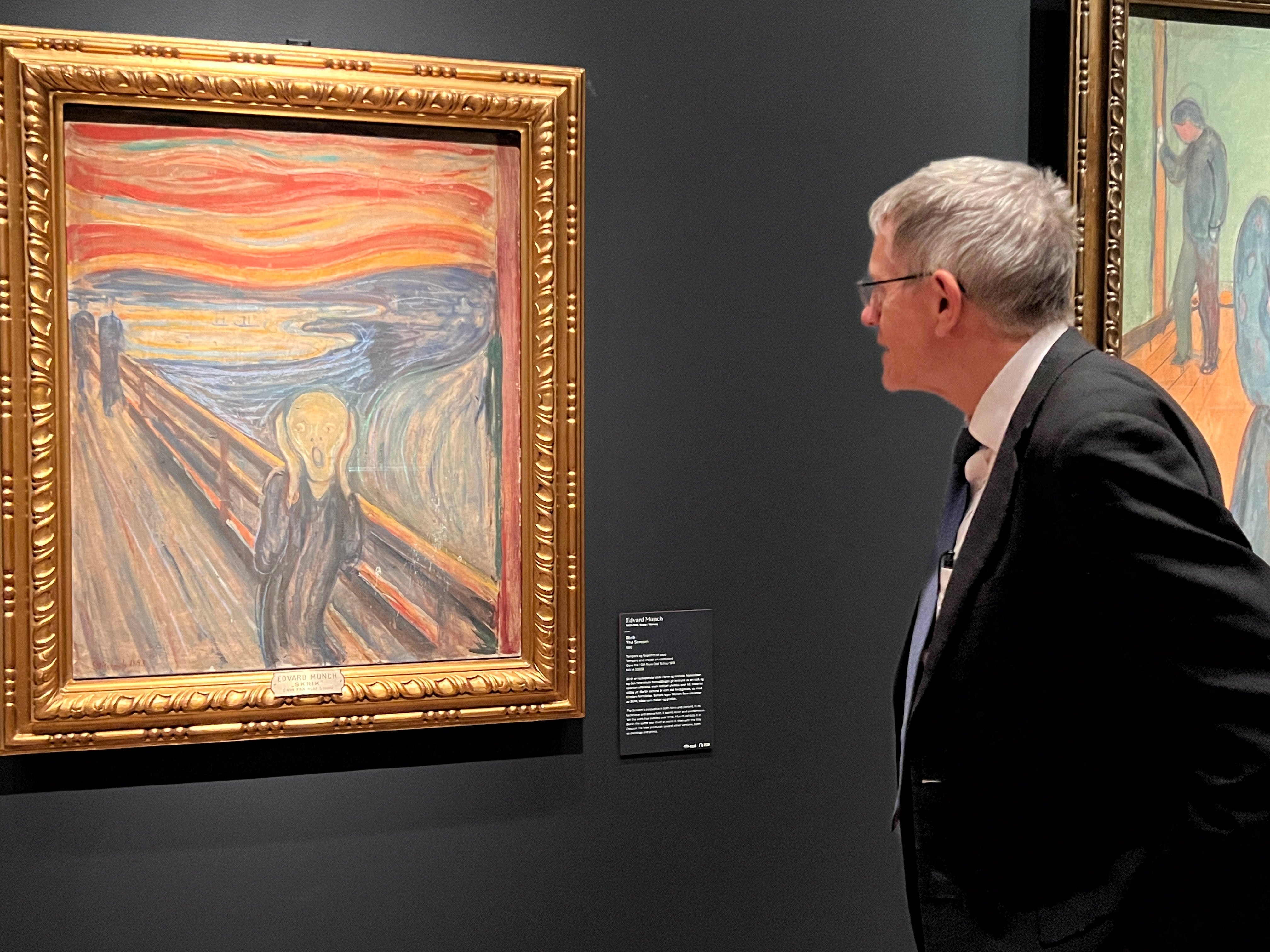
Simon Calder, also known as The Man Who Pays His Way, has been writing about travel for The Independent since 1994. In his weekly opinion column, he explores a key travel issue – and what it means for you.
Paris, Amsterdam, Florence, New York, London? None of them, according to Karen Hindsbo, can match the world’s newest cultural attraction.
“This is the best museum in the world,” she insists. Karen is not exactly an impartial observer: she is the director of Norway’s new National Museum.
Norway is rather more celebrated for its natural wonders than for its cultural assets. I hazard a guess that you will know of one, and only one, Norwegian work of art: The Scream, Edvard Munch’s celebrated depiction of a tourist who has just seen the bill for a round of drinks on the terrace of an Oslo cafe.
The study in inner agony is a highlight of this vast new structure, which finally opens to the public on Saturday 11 June. While Munch made several versions of The Scream, this is the original – and features the intricate inscription Kan kun være malet af en gal Mand! (“Could only have been painted by a madman”).
But according to Karen, there is so much more.
“We have an amazing collection,” she says. “I think people will be quite surprised about what we have in Norway.
“We have The Scream, of course, which is one reason. But we have vases from the Ming Dynasty. We have small figurines from the 12th century.
“We have a 1,000-year-old tapestry, which is in an incredible condition. We have contemporary arts, we have installations, we have sculptures...”
And to house them, Norway now has a £600m art museum, as a gift to itself and the world.
Some people have derided the building – which wraps partly around the city’s old western railway station – calling it the “national prison”. Looking up from the outside at the stern, storm-grey walls, there is more than a touch of maximum security about it. But once inside, the Nasjonalmuseet already feels like home.
Karen is talking to me in The Salon: a lounge area designed with weary tourists in mind, where they can rest and contemplate. With chairs strewn around, it feels like a particularly comfy airport departure lounge, with a tall, floor-to-ceiling window.
The view is far better, though: ferries carve across Oslo Fjord; the old railway station stands like a temple of transportation; and pedestrians create random patterns as they wander beside the water. Cultural collections need not be separated from their community.
And better still, the roof is one big garden, with an even better, panoramic view of the city skyline and the harbour – plus random touches, such as a replica of an ancient dwelling made of peat, a reminder of life before the oil boom.
Of all the nations made fabulously rich by their hydrocarbon reserves, Norway has spent most wisely and generously – and the country deserves more tourists.
“We will give culture a lift in Norway, and we will lift Norway with culture,” says Karen. “Norway was always [world-class], but now we can present it in a much finer way.”

The moment I realise I have been away too long is when the man in the cafe looks at my 100kr note as though it belongs in a museum itself. “We can’t accept those any more,” he says, advising me to find a bank where the currency might be upgraded.
Oslo deserves a return visit soon, with its latest creation of sheer scale and class.







